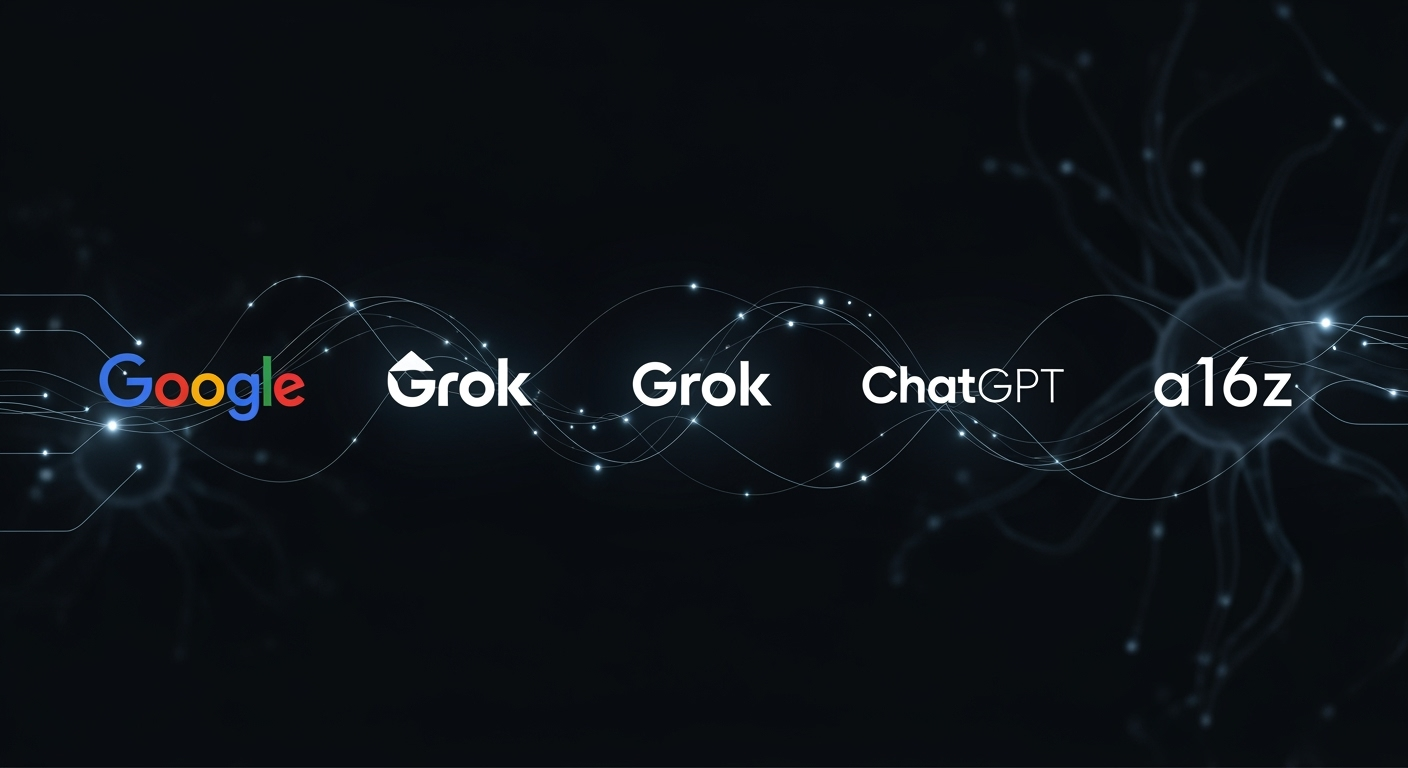Google Gemini and Grok Narrow the Gap with ChatGPT, Says a16z

Google Gemini and Grok Make Strides in the AI Race
The landscape of consumer AI is evolving rapidly, with new players closing in on OpenAI’s ChatGPT. According to the latest report from venture firm Andreessen Horowitz (a16z), Google’s Gemini and xAI’s Grok are now strong contenders, challenging ChatGPT’s dominance in both web and mobile experiences.
Top AI Products: New Entrants, Shifting Trends
a16z’s fifth annual report on generative AI highlights the top products shaping user behavior worldwide. For another consecutive year, 14 companies—including ChatGPT, Perplexity, Poe, and Character AI—remained at the forefront. These platforms span a wide range of use cases: from general assistance and productivity to creative tools and companionship.

Other notable mentions include Claude, DeepAI, and Suno, which have consistently featured in previous editions. These cover everything from conversational models to music and image editing, reflecting the diverse needs of AI users.
Google’s Rapid Growth in AI
For the first time, Google secured four spots among the top generative AI consumer web products: Gemini, AI Studio, NotebookLM, and Google Labs. Each now operates with its own domain, enabling clearer measurement of user engagement and growth.

Gemini, in particular, has become the No. 2 app on mobile, coming closer to ChatGPT, though it still trails in monthly active users. The majority of Gemini’s user base is on Android, a direct result of Google’s ecosystem strength.
Google’s AI Studio debuted in the web top 10, while NotebookLM and Google Labs are also quickly gaining traction with users interested in AI-powered productivity tools and experimental features.
Grok and Meta AI: Fast Followers
xAI’s Grok has seen remarkable growth, ranking fourth on the web and 23rd on mobile—a significant achievement for a product that launched less than a year ago. Grok 4’s release in July 2025 fueled a 40% month-over-month increase in users, pushing it past 20 million monthly actives.

Meanwhile, Meta’s AI assistant maintains a web presence but has struggled to gain mobile traction, partly due to privacy concerns that affected user trust.
Chinese AI Players on the Rise
The report also highlights the global growth of AI apps developed in China. Quark, Doubao, and Kimi each attract a predominantly Chinese user base, while others like DeepSeek and SeaArt have expanded internationally.
On mobile, 22 of the top 50 apps originated in China, though only a few cater primarily to local audiences. Well-known brands such as Meitu and ByteDance continue to innovate with AI-powered editing and productivity features.
Emerging Startups and Market Shifts
Newcomers Lovable and Replit made their debut on the list, thanks to their growing influence among developers and creators. The mobile app landscape is also becoming more dynamic, with 14 new apps entering the top 50 as app stores have cracked down on low-quality ChatGPT clones, making room for original, high-value offerings.

The Bottom Line
a16z’s report illustrates how competition in consumer AI is intensifying. While ChatGPT remains the leader, Google’s Gemini and xAI’s Grok are accelerating their growth through innovation and broad adoption. Meanwhile, Chinese companies and emerging startups are ensuring the field remains dynamic and globally relevant.





